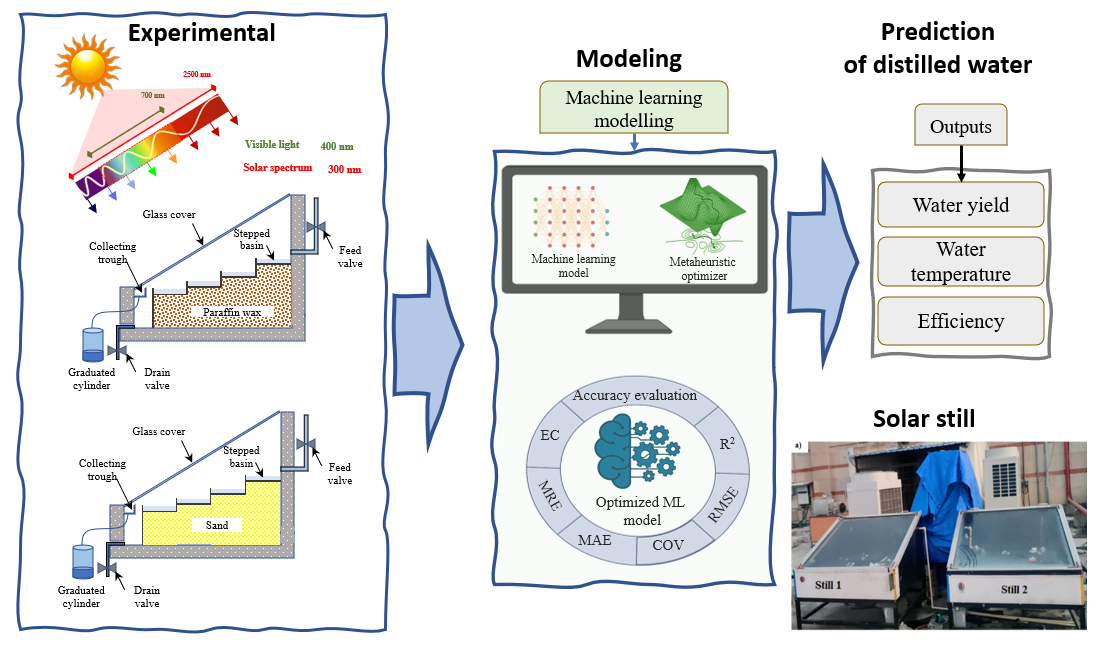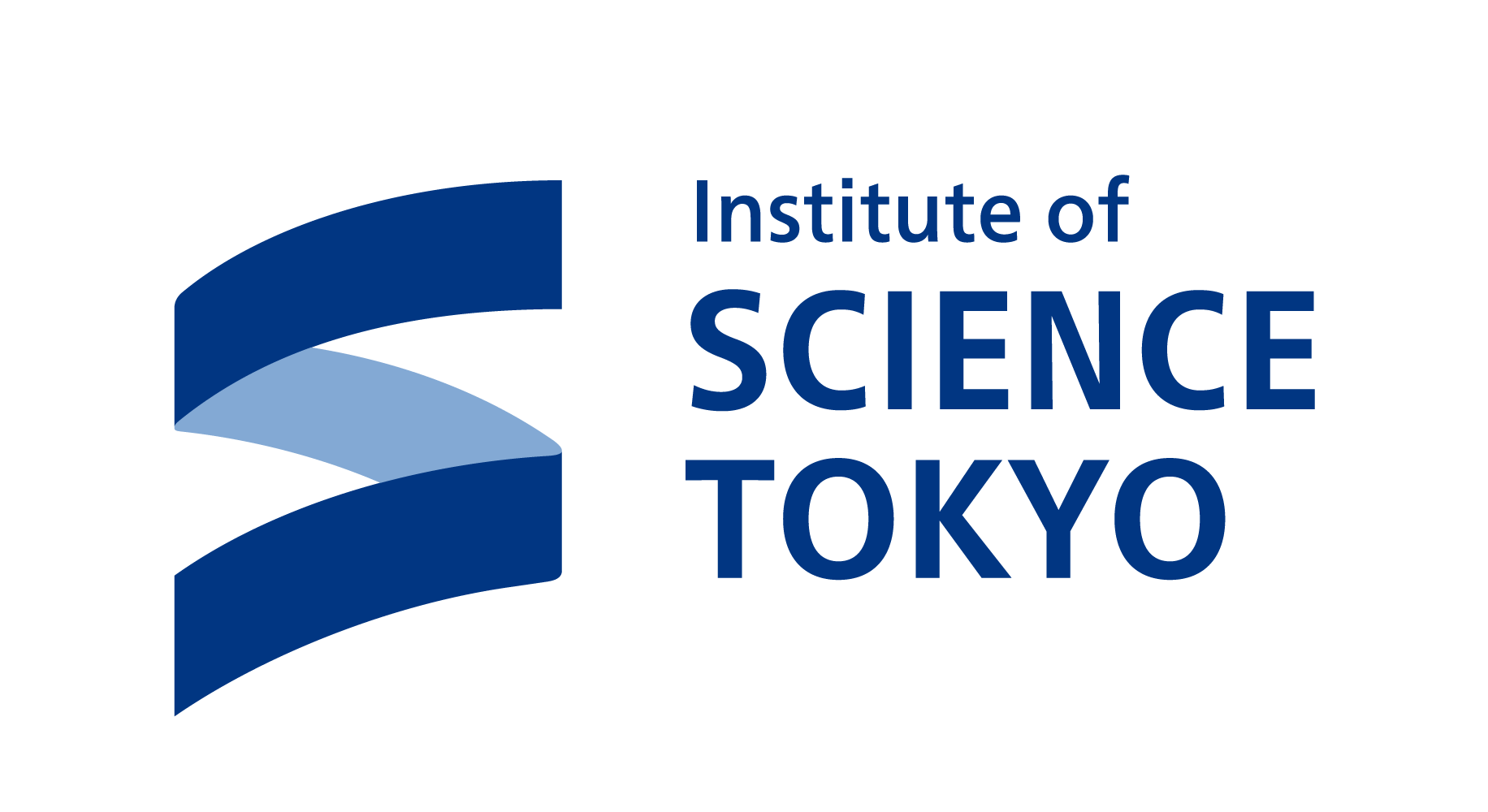
機能性ナノ材料を活用したハイブリッド太陽熱蒸留による海水淡水化技術の開発 / Development of Seawater Desalination Technology by Hybrid Solar Distillation Using Functional Nanomaterials
持続可能な開発目標などにも含まれるように、安心安全な水の供給は持続可能な社会の構築において必須である。特にアフリカや中東地域などの乾燥地域における、安定な水の供給やエネルギー効率の良い海水淡水技術の開発は重要な学術的・社会的課題となる。太陽光発電を利用した最も一般的な淡水化技術の一つに、太陽熱蒸留器(SS)がある。太陽熱蒸留器は、金属製または高分子製のトラフ(水槽容器)と太陽光透過性を有する素材であるガラスカバーなどで構成され、蒸留器内に海水を加えると、加熱・蒸発し、水蒸気はガラスカバーの内側で冷やされ凝縮したのち、蒸留器において蒸留収量として回収される。本研究では再生可能エネルギーである太陽熱を利用して海水淡水化可能な太陽熱蒸留技術の開発に取り組んでいる。特に、集光性や伝熱性の高い新機能性材料を活用することで、蒸留プロセスの高度化と淡水化収量の増加を図るとともに、淡水化収量の高い蒸留装置デザイン設計を行い、日中の余剰熱の貯蔵やその夜間利用等を通してエネルギー効率化を行い、機械学習による太陽熱蒸留システム最適化等を実施することで、淡水収率の改善に取り組んだ。
As indicated in the Sustainable Development Goals , a secure and safe water supply is essential for developing a sustainable society. Especially in arid regions such as Africa and the Middle East, the development of stable water supply and energy-efficient desalination technologies is an important academic and social issue. One of the most common desalination technologies using solar power is the solar distill (SS). When seawater is added to the distiller, it heats saline water and evaporates, and the water vapor is cooled inside the glass cover, condenses, and is recovered as distillation. In this study, we are developing a solar distillation technology that can desalinate seawater using solar heat, which is a renewable energy source. In particular, by utilizing new functional materials for light collection and heat transfer, we aim to improve the distillation process and increase desalination yield, design a distillation system with high desalination yield, improve energy efficiency through storage of excess heat during the day and its nighttime use, and optimize the solar distillation system using machine learning.

関連論文 references
A Elsheikh, KA Hammoodi, A Ibrahim, AHI Mourad, M Fujii, , Augmentation and evaluation of solar still performance: A comprehensive review, Desalination, 117239, 2023

